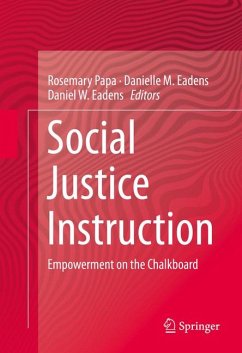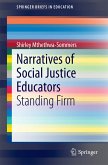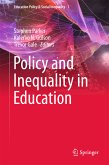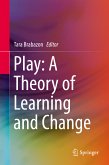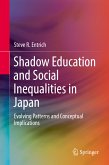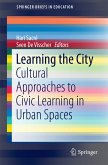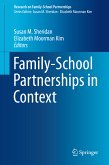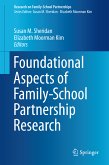Among the topics covered:
- Reframing social justice for the adult learner.
- The politics of "being": faculty of color teaching social justice in the college classroom.
- Stories of social justice from the kindergarten classroom.
- Critical literacy and multicultural literature. The shaming: creating a curriculum that promotes socially-responsible online engagement.
- Literacy is a civil write: the art, science, and soul of transformative classrooms.
For educators and education researchers involved in the field, Social Justice Instruction unlocks the potential for imparting progressive ideas along the educational spectrum. The strategies here model a humanist perspective that will serve learners both in and outside the classroom.
Dieser Download kann aus rechtlichen Gründen nur mit Rechnungsadresse in A, B, BG, CY, CZ, D, DK, EW, E, FIN, F, GR, HR, H, IRL, I, LT, L, LR, M, NL, PL, P, R, S, SLO, SK ausgeliefert werden.

